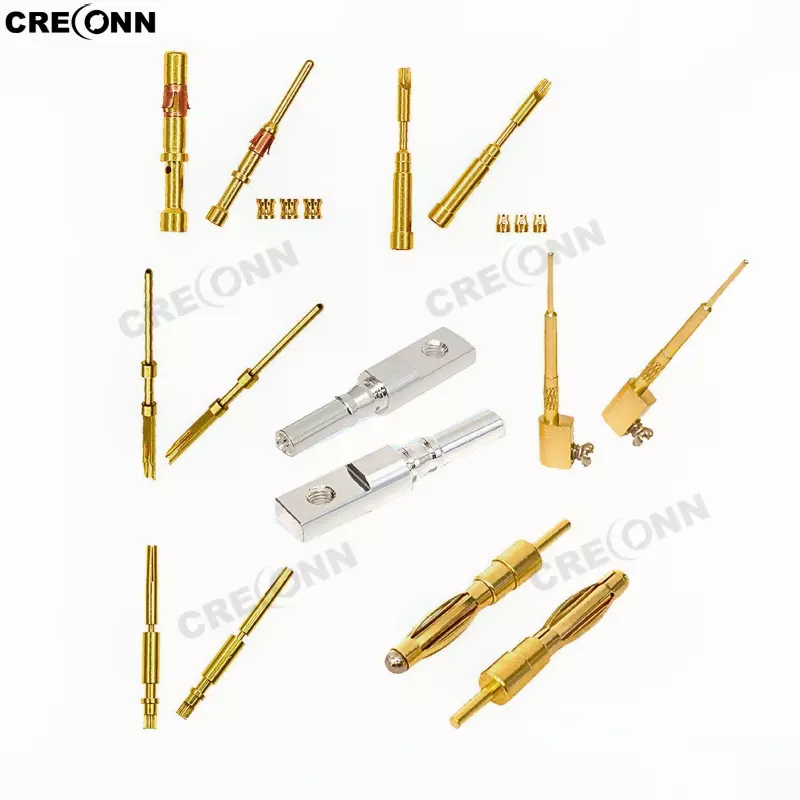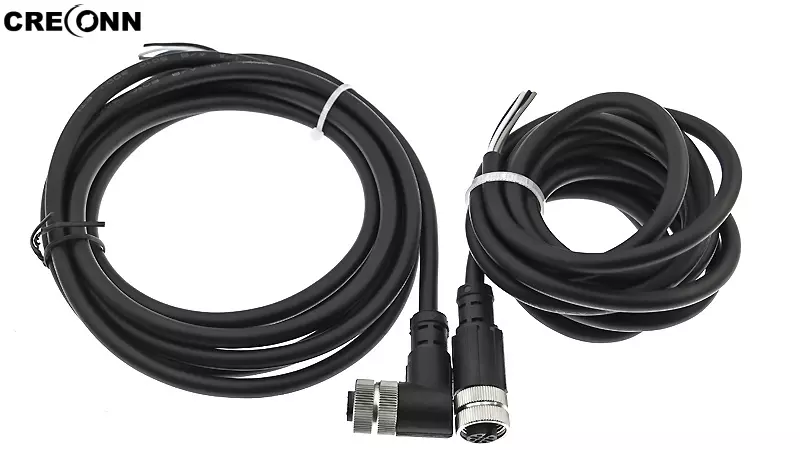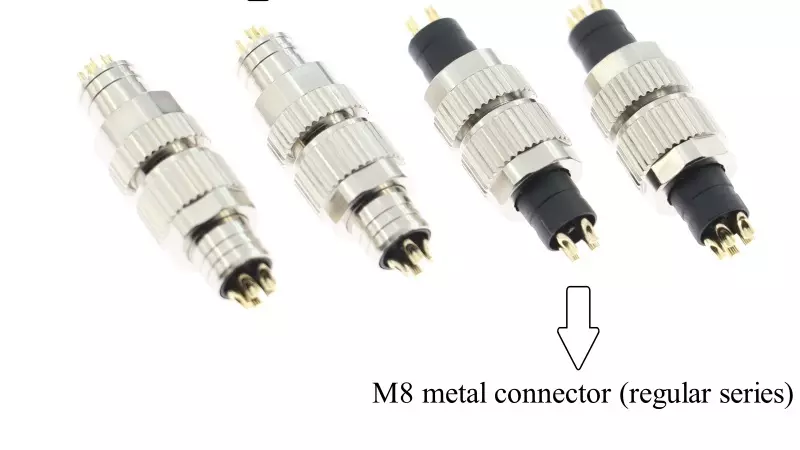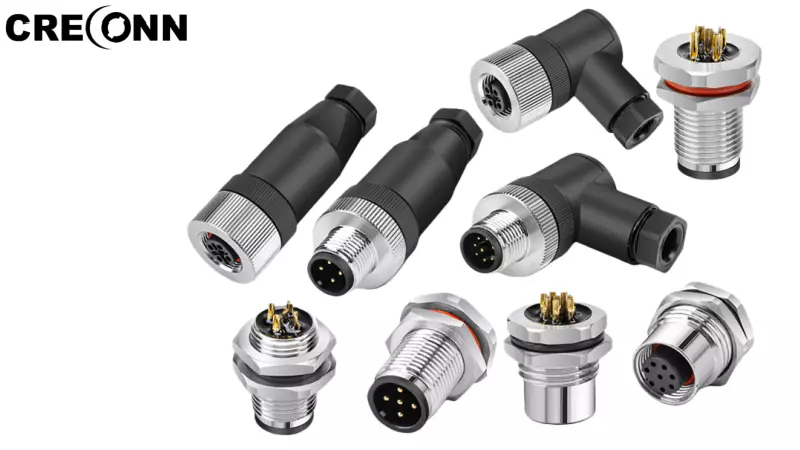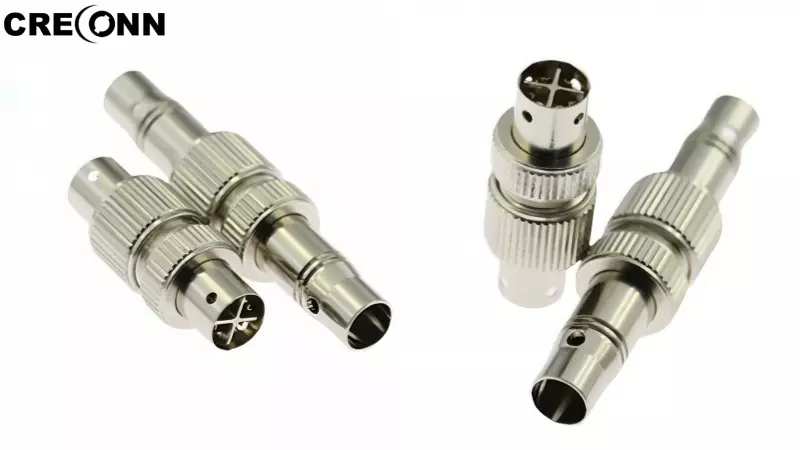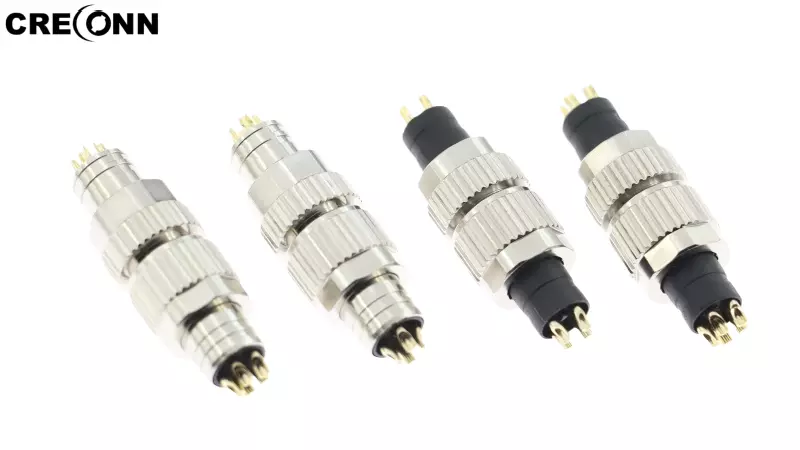Connector Pin & Socket Connection Technologies
Connector Pin & Socket Connection Technologies
-
Crimping
-
Definition: Uses pressure to join pins/sockets with wires before assembly.
-
Pros: High reliability, vibration-resistant, avoids soldering defects.
-
Cons: Requires specialized tools, limited reusability.
-
Applications: Aerospace, military, high-density connectors.
-
Soldering
-
Definition: Melts metal to fuse pins/sockets with wires.
-
Pros: Strong bonds, high-temperature tolerance.
-
Cons: Requires skill, thermal damage risk, slower process.
-
Applications: Automotive/industrial electronics.
-
Stamping
-
Definition: Presses metal sheets into shape using molds.
-
Pros: Cost-effective, high-volume production.
-
Cons: Limited precision, higher initial tooling cost.
-
Applications: Consumer electronics, appliances.
-
Machining (Turning)
-
Definition: Shapes raw metal via lathe cutting.
-
Pros: High precision, complex geometries.
-
Cons: Slow for mass production, material waste.
-
Applications: Precision instruments, aerospace.
-
Grinding
-
Definition: Polishes surfaces for smoothness/dimensional accuracy.
-
Pros: Superior finish, tight tolerances.
-
Cons: Expensive, time-consuming.
-
Applications: High-end connectors.
-
Spring-Based Connections
-
Wire Spring: Large contact area, low resistance (high-current uses).
-
Crown Spring: Stable structure (critical systems like aviation).
-
Cons: Higher cost, complex assembly.
-
Slotted (Split-Beam)
-
Definition: Spring-loaded slots grip inserted pins.
-
Pros: Compact, reliable for dense layouts.
-
Cons: Complex manufacturing, higher unit cost.
-
Applications: Telecom/HD electronics.
Guangdong Corecon Precision Industry Co., Ltd. aims to be your reliable partner in pin and socket manufacturing. Our professional team stands ready to support you, driving your business forward. Choose Corecon for a trustworthy partnership and a brighter future. Contact us for inquiries or more information.
